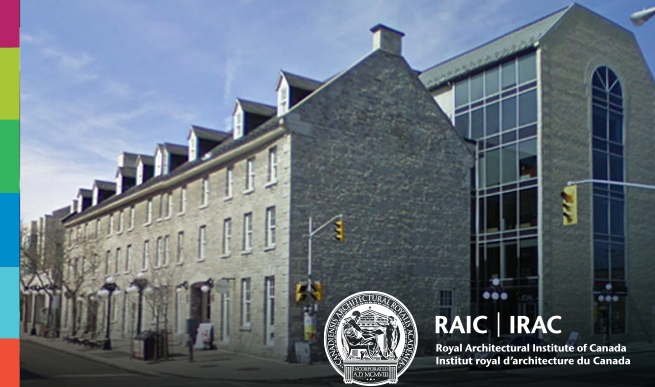
Doctoral Fellowship in cultural history and museology with emphasis on indigenous knowledge in cultural historical archives and/or museums
A Doctoral Research Fellowship (SKO 1017) in cultural history or museology with emphasis on indigenous knowledge in cultural historical archives and/or museums is available at the Department of Cultural Studies and Oriental Languages, University of Oslo. Applicants must develop a research project that investigates how indigenous knowledge has been classified, represented, or exhibited in specific cultural historical archives and/or museums. Projects may address themselves to archive or museum, past or present, and explore any aspect of their relationship to indigenous knowledge: from colonial collections to contemporary digital preservation efforts. The research could for instance focus upon themes such as how the knowledge systems of indigenous peoples have been incorporated and represented in cultural historical archives or museum – or how indigenous peoples have used museums and archives as platforms for cultural self-presentation and preservation. The geographical and historical focus for the project is open, as are the methods and theoretical framework. Critical and innovative approaches are encouraged, and so are projects that explore or re-theorise archives and/or museums from indigenous vantage points. The appointed person will be a part of the section of cultural history and museology and take part in the development of the section’s innovative research in the history of knowledge. The project description must be submitted as part of the application.
The person appointed will be affiliated with the Faculty’s organized research training. The academic work is to result in a doctoral thesis that will be defended at the Faculty with a view to obtaining the degree of PhD. The successful candidate is expected to join the existing research milieu or network and contribute to its development. Read more about the doctoral degree.
The appointment is for a duration of 3 years. All PhD Candidates who submit their doctoral dissertation for assessment with a written recommendation from their supervisor within 3 years or 3 ½ years after the start of their PhD position, will be offered, respectively, a 12 or 6 month Completion Grant.
Qualification requirements
- A Master’s degree or equivalent in cultural history, museology, or other relevant disciplines for the topic of the proposed project. The Master’s degree must have been obtained and the final evaluation must be available by the application deadline.
- Fluent oral and written communication skills in English, see Language requirements
- Personal suitability and motivation for the position.
To be eligible for admission to the doctoral programmes at the University of Oslo, applicants must, as a minimum, have completed a five-year graduation course (Master’s degree or equivalent), including a Master’s thesis of at least 30 ECTS. In special cases, the Faculty may grant admission on the basis of a one-year Master course following an assessment of the study programme’s scope and quality.
In assessing the applications, special emphasis will be placed on:
- The project’s scientific merit, research-related relevance and innovation
- The applicant’s estimated academic and personal ability to complete the project within the time frame
- The applicant’s ability to complete research training
- Good collaboration skills and an ability to join interdisciplinary academic communities
Applicants who have recently graduated with excellent results may be given preference.
We offer
- Salary NOK 491 200 – 534 400 per annum depending on qualifications
- A professionally stimulating working environment
- Membership in the Norwegian Public Service Pension Fund
- Attractive welfare benefits
How to apply
The application must include:
- Application letter describing the applicant’s qualifications and motivation for the position
- Curriculum Vitae (with a list of education, positions, teaching experience, administrative experience and other qualifying activities, including a complete list of publications)
- Transcript of records of your Bachelor’s and Master’s degrees. Applicants with education from a foreign university must attach an explanation of their university’s grading system
- Documentation of Language requirements (if applicable)
- Project description, including a detailed progress plan for the project (3 – 5 pages, maximum 14,000 characters. See Template for project descriptions)
Please note that all documents must be in English or a Scandinavian language.
Educational certificates, master theses and the like are not to be submitted with the application, but applicants may be asked to submit such information or works later.
The application with attachments must be delivered in our electronic recruiting system, jobbnorge.no.
Short-listed candidates will be invited for an interview.
Formal regulations
See also regulations as well as guidelines for the application assessment process and appointments to research fellowships.
Following the Freedom of Information Act (Offentleglova) § 25, Chapter 2, demographic information about the applicant may be used in the public list of applicants even if the applicant opts out from the entry in the public application list.
The University of Oslo has an Acquisition of Rights Agreement for the purpose of securing rights to intellectual property created by its employees, including research results.
The University of Oslo aims to achieve a balanced gender composition in the workforce and to recruit people with ethnic minority backgrounds.
Contact information
For questions about the position: Professor John Ødemark
For questions on how to apply: HR-officer Natali Helgesen
About the University of Oslo
The University of Oslo is Norway’s oldest and highest ranked educational and research institution, with 28 000 students and 7500 employees. With its broad range of academic disciplines and internationally recognised research communities, UiO is an important contributor to society.
The Faculty of Humanities at the University of Oslo is Norway’s largest and among the best in its field in Scandinavia.
The Faculty has approximately 6000 students and offers 14 BA programs, 22 MA programs, 18 one-year courses and more than 70 subjects encompassing language, culture, history, media, literature and ideas. Over 700 people are employed at the 7 departments and 2 centres and in the Faculty administration. The Faculty of Humanities also hosts the new inter-disciplinary UIO: Nordic initiative and has two centres of excellence.
Apply for this job
![Postdoctoral and Research Opportunities at McGill University [CA]](https://scholaridea.com/wp-content/uploads/2020/06/mcgill-university-30-may-2019-768x402.jpg)

